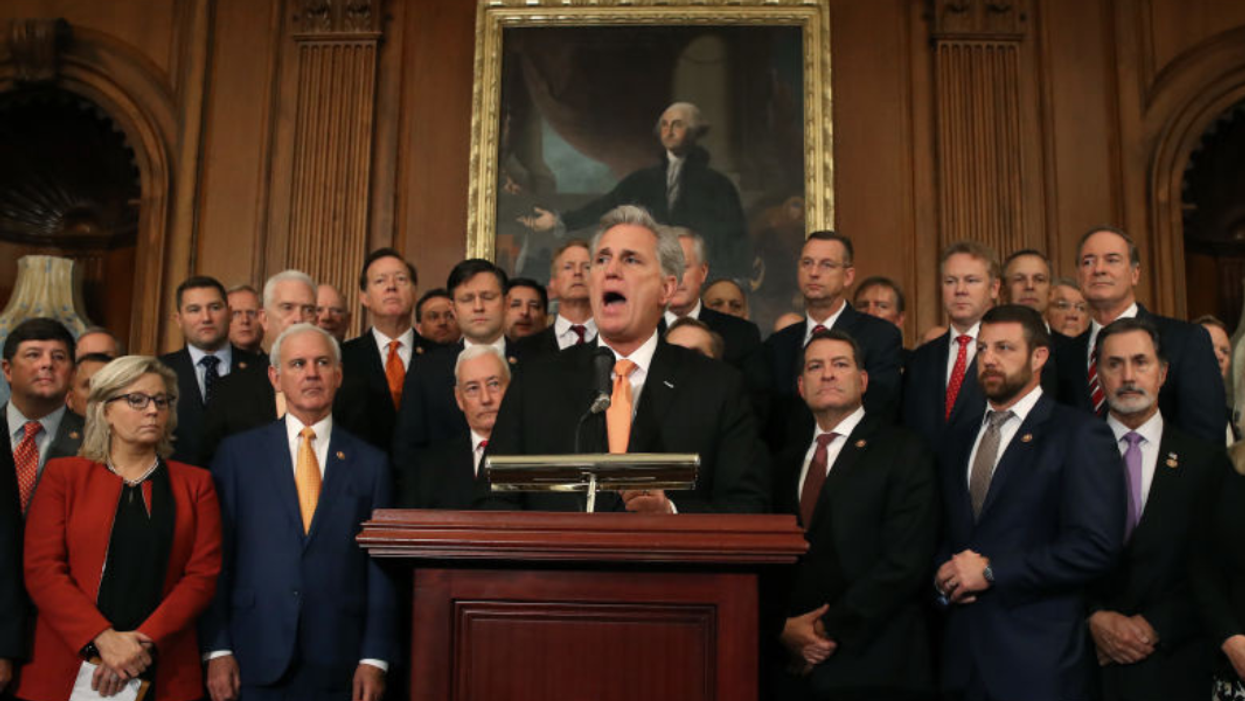Frost served 26 years as a Congressman from the 24 th District of Texas (Dallas-Ft. Worth) from 1979 to 2005. During that time he served eight years in the House Democratic Leadership, four years as Chairman of the Democratic Congressional Campaign Committee and four years as chair of the House Democratic Caucus. He was a member of the House Rules Committee and the House Budget Committee. Since leaving Congress he served four years as chair of the National Endowment for Democracy and is the immediate past president of the Former Members of Congress Association.
As a former 26-year Congressman from Texas (1979-2005), I have observed and been personally involved in many House leadership races. Knowing that the race may have been concluded before you read this, I none-the-less believe that the following comments are important to shed some light on the current spectacle the American people have been subjected to and the inevitable chaos that will follow no matter who eventually wins the Speakership.
Leadership races are often already over before the first vote is cast. The most recent example was Nancy Pelosi’s race for speaker four years ago. The House was closely divided and there was a group of dissident Democrats who wanted her replaced with someone younger. To her credit, Nancy made a deal with the dissidents before the voting started. She agreed to limit her tenure to that term and one more. The opposition disappeared.
Kevin McCarthy has known for several months that there is a rump group in his own conference that would vote against him on the floor, thus denying him the 218 votes necessary to win. And yet, even with eight weeks’ worth of negotiating time, he was not capable of making a deal the way Pelosi did and thus has subjected him and his party to massive embarrassment on live television.
If McCarthy ultimately is successful in making a last-minute deal and winning the Speakership, he will have given away the store and be Speaker in name only. As we say in the South, he will be a “capon.” For those of you not familiar with the term, a capon is a rooster without testicles.
What most Members of Congress want is a Speaker with some guts who will drive hard bargains but ones that, in the final analysis, are for the good of the country. This has little to do with partisan philosophy but with strength and credibility on both sides of the aisle. Members in both parties often disagreed with Pelosi on some issues, but they respected her ability to arrive at a solution that served the national interests.
McCarthy’s problem from the outset was that he didn’t know how to compromise without surrendering his basic, core principles.
Both Democrats and Republicans have often complained about the power of the House Rules Committee, acting in concert with the Speaker, to structure debate in a way that overly restricts the offering of floor amendments. However, there is a balance to be struck here to ensure partisans on both sides of the aisle don’t “filibuster by amendment” and block important legislation for getting a final vote. I served on the Rules Committee for 26 years and saw both Democratic and Republican Speakers use this power to come to a final result on the floor.
McCarthy has been willing to give a minority of his own party veto power over major legislation through the rules of the House and veto power of his tenure as Speaker. A real Speaker (like Pelosi and Gingrich) would never give away the store to get the title “Speaker” while making it impossible to do the people’s business.
In addition, he has made a major concession that flies in the face of the lesson Republicans should have learned from their mid-term election debacle. He has promised that a future Speaker McCarthy would not financially support moderate candidates running against far-right fringe candidates in Republican primaries. The anticipated Republican wave never materialized in the 2022 midterm election because numerous safely Republican races went to the Democrats as the electorate voted against far-right extremists. Instead of steering the caucus back toward a more moderate Republican majority willing to govern, McCarthy is ensuring that the very group that is making his life miserable is going to grow! We have the debt ceiling vote looming on the horizon during the second half of this year, and a Republican caucus beholden to their fringe element may just be chaotic enough to drive the country’s economy over the cliff.
Let’s hope that however this drama ends, our country has a Speaker who retains enough power to pass legislation in the time of crisis for our country. If the public doesn’t like the final legislative result, it can always vote for the other party in the next election. That’s the beauty of having elections for the House every two years.



















